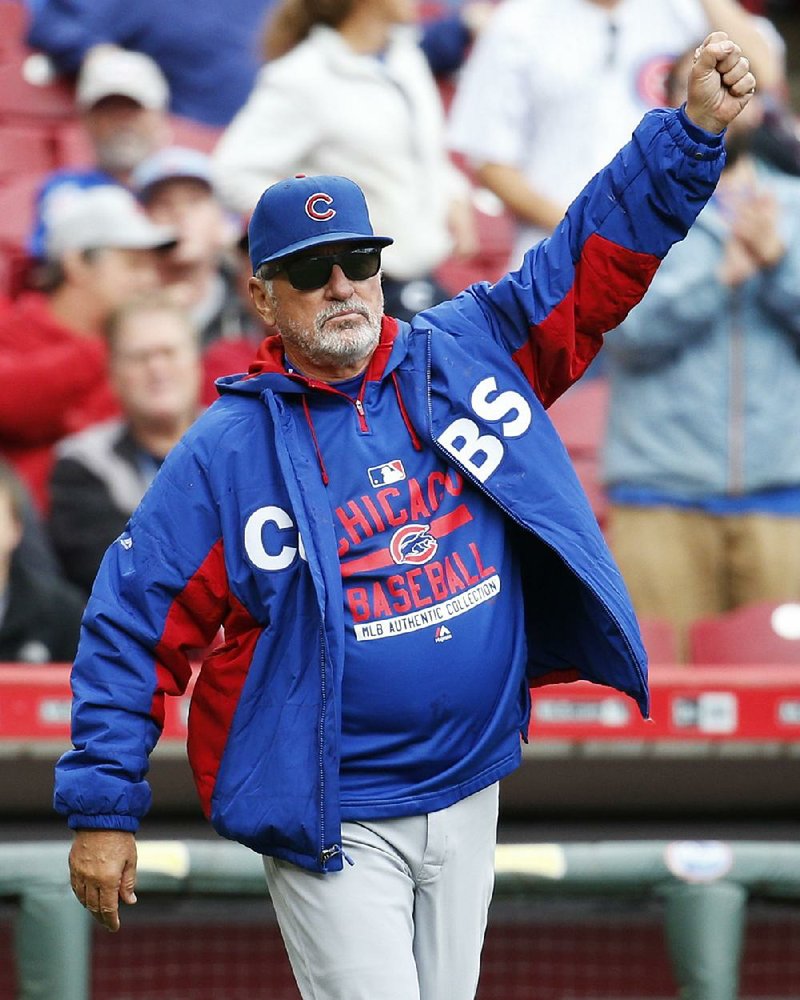Joe Maddon quickly admits the situation he inherited with the Chicago Cubs was less difficult than when he took over a struggling Tampa Bay Rays franchise in 2006.
But some of the policies and decisions that Maddon made with the Rays have been applied to a harmonious Cubs team because Maddon lets veterans police the younger players.
"There were tough conversations the first two years with guys who really weren't very good major league players who thought they were," Maddon said of his early years with Tampa. "Wow. That was really delusional stuff that you had to deal with behind closed doors. It was bizarre.
"I came from a very good situation in Anaheim [as a bench coach], and to deal with that the first 1 1/2 years?"
Maddon said the culture started to transform more positively when the Rays acquired reliever Dan Wheeler in a trade with the Houston Astros for third baseman Ty Wigginton, whom Maddon liked.
"The bullpen would give it up, but Danny gave form to that bullpen," Maddon said. "And once he did, they started to follow his lead -- purely his work ethic, and suddenly they became better. Now you're starting to finish games, and when you start to finish games, everything you did before to finish games, it was a good move, good lineup.
"When you lose that game, everything you did before that is wrong. Danny was a really big part of changing that culture down there."
There are comparisons to the 2008 Rays team that won the American League because of veterans like Eric Hinske (Arkansas Razorbacks), Troy Percival, Cliff Floyd and Wheeler that policed the clubhouse in the same way that Cubs veterans David Ross, Jake Arrieta, Chris Coghlan and Pedro Strop have helped the younger players.
Maddon admits his success with the Rays has helped him get his point across much easier.
"I'm sure they were questioning me a lot more behind my back than maybe they do now," Maddon said. "That's part of what a manager has to go through. Players form their groups or meetings after meetings by the water cooler or food room. That's the guy who is going to try to find that other guy who supports his theory. And if you can't find an ally, that's the beautiful part of it. When you have a tightly knit group, the guy who is messing things up -- looking for allies -- is not going to find one.
"Therein lies when the fans are looking for a definition as to why I talk about letting the players handle it, why the clubhouse is so important, why you have to have leadership within the clubhouse, it's because when you do, these little pockets looking for allies in a negative sense, they get blown up immediately by the guys. I'm pretty sure we have that now, where that negative component cannot prosper because the guys in the clubhouse get it."
Maddon feels good about his clubhouse but said the message has to be nurtured constantly, with the younger players carrying the message and becoming veteran leaders to "teach the Cubs' way we want to do things here."
Maddon was adamant about staying consistent in his message.
"Just being a positive person by nature, I was accused of being too positive, which I really find hysterical. But that was the biggest rap, publicly, that some people thought I was too positive. I can live with that."
Sports on 10/03/2015
